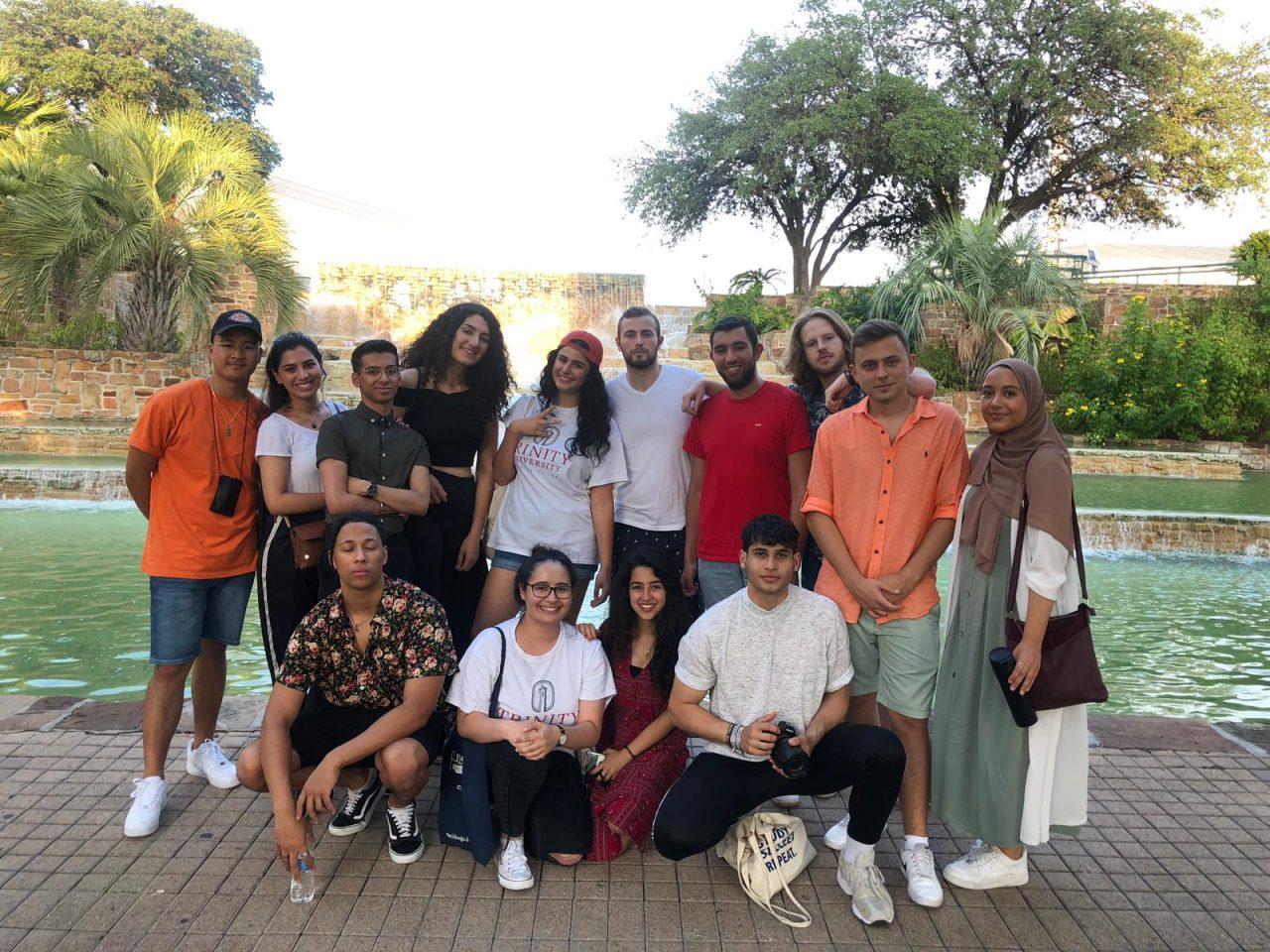Photo provided by Ethan Jones
Students from various cities in Germany as a part of the Fulbright Diversity Initiative. All are taking the opportunity to live in and learn about another country for a month and have been enjoying their time in the United States so far. They’ve been making an effort to interact with the Trinity community as well as Americans in general.
Some had fears about coming to the U.S. They questioned whether they would be accepted into the country at the border and were nervous about police brutality and gun violence.
“When I told my friends I would go to Texas they were like, ‘You sure? They all vote Trump, and they all have guns, and you know, you are black, and the police will come to you,’ ” said Gary Emekwa, a student at the University of Applied Science Europe studying film and motion design.
Fady Saleh, a Fulbright student from Frankfurt, Germany, who studies business administration and management, was curious to see if America was really like the movies.
“From media and stuff like that, you always hear Texas is in the South, and it’s not so secure — they have guns and stuff like that,” Saleh said. “You also hear a lot about mass shootings.”
Saleh expressed his discomfort with the possibility that anyone in Texas might have a gun — something he would never consider in Germany.
“Imagine Frankfurt, for example, if someone looks at you, and he wants to have a fight with you, it’s OK, you can go into the fight. It’s like a fight between two humans; it doesn’t escalate in general. In America, you have to think twice of going into a fight with someone because they might carry a gun,” Saleh said.
Aya Mansouri, who studies social sciences at Bielefeld University, wondered whether she would face discrimination for her hijab.
“You have to know that walking around with a scarf or hijab in Germany is always hard,” Mansouri said. “People always look at you. Always. And here at Trinity, I am the only one who is wearing it, so it’s actually a little bit strange; people don’t know it. … People are just treating me normal, so it’s not a big deal here.”
Anh-quoc Doan, a student at the University of Hamburg studying educational science, was also surprised by how he was treated by Texans.
“The people are very kind here. It’s not comparable to Germany,” Doan said. “I guess in Germany a lot of people are grumpy and it is easier to talk to people here and ask for help and maybe have a normal conversation.In addition, Fulbright students were surprised that Americans knew so little about Germany.
“In Germany, we take ourselves very serious. We think we are one of the big guys when we talk about world politics,” Emekwa said. “But I ask a lot of [Americans] what they know about Germany and they know one thing for sure — the Nazi time and Hitler — but that’s mostly the only thing they know. They don’t know what president or chancellor we have, and it’s weird because we see so much American stuff in Germany.”
The Fulbright students were surprised by the size of Trinity’s campus, finding it to be large compared to their schools in Germany. They were impressed by all the amenities available, but shocked by the tuition costs in America.
Mansouri said she would prefer the American education if it wasn’t for the high tuition cost.
“You pay so much. It’s normal that you get these [amenities] for that [cost],” Mansouri said.
The students were impressed by more than the amenities at Trinity; they also found professors at Trinity to be more interactive and friendly than their teachers in Germany. They reflected that the structure of classes and assignments are extremely different in Germany than in the U.S.
Where Trinity classes tend to be small, lectures in Germany may have 400 people and then smaller seminars to the lectures with 30 people. In those seminars, there are presentations every week and papers to write.
“It’s hella boring,” said Anh-quoc Doan. “The seminars [in Germany] are like 90 minutes long and the professors say nothing. The presentations from the students are not that good, and then you have to write papers. Nobody is very motivated in class but one or two people.”
The Fulbright arrived on campus in mid-August and will leave Trinity on Sept. 16.
Ultimately, all have enjoyed their experience at Trinity and in America so far and are grateful for the opportunity that the Fulbright Diversity Initiative has provided them.













